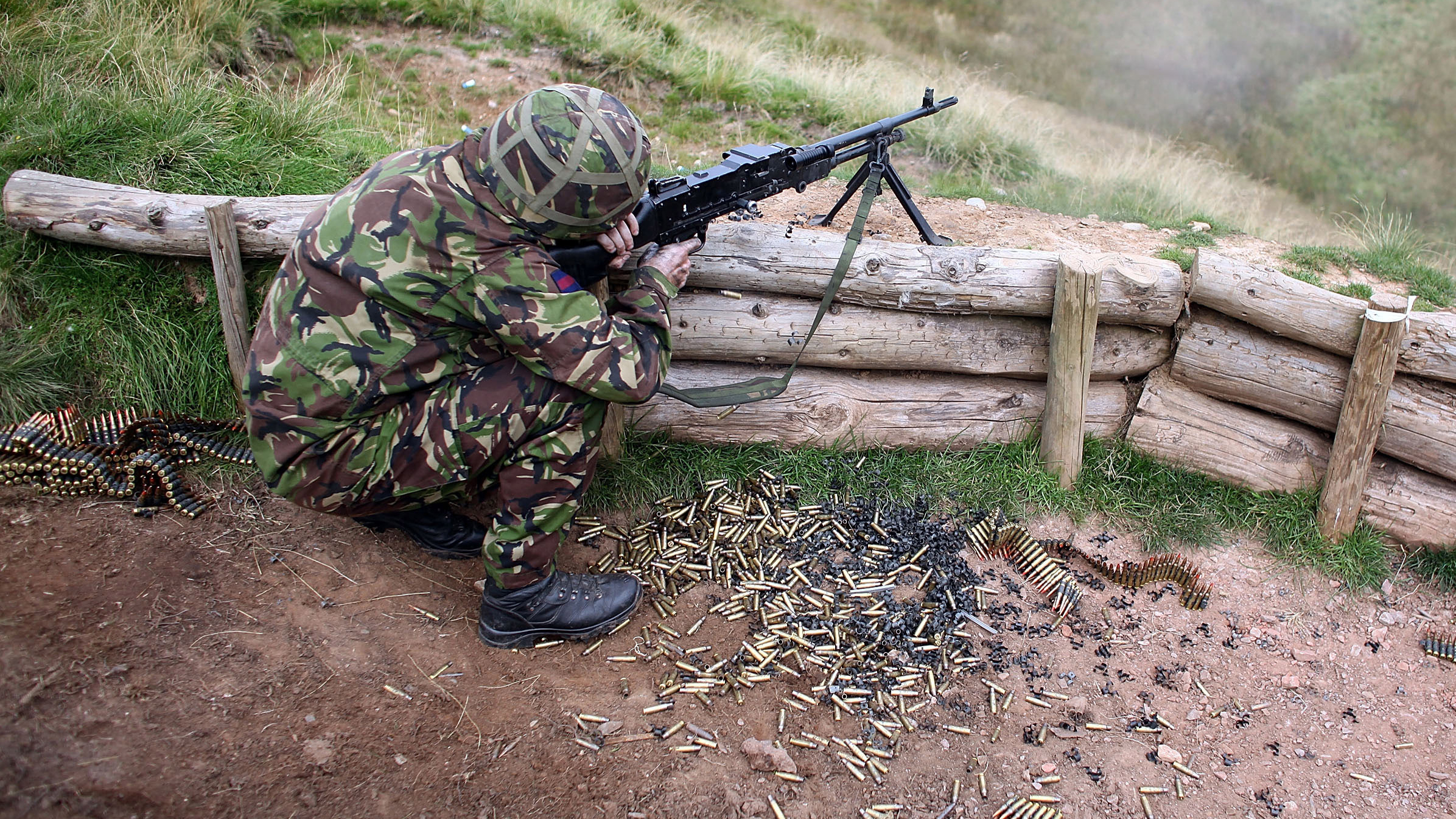Women served in ‘male-only’ British TA combat roles
Exclusive: Channel 4 News has seen a restricted document which says 55 women served in combat roles for the British Territorial Army last year, against MoD policy.

Despite US Defence Secretary Leon Panetta’s announcement on Thursday that he would lift the military’s ban on women serving in combat, it remains against UK Ministry of Defence (MoD) policy for women to serve in combat roles.
Under the equal treatment directive, the MoD is required by European community law to reassess whether women should continue to be excluded from ground close-combat roles every eight years.
The last review took place in 2010 and raised concerns that male soldiers would pay too much attention to a wounded female soldier than others, at a risk to his own life.
But in an army document written in September last year and marked “Restricted – Management”, it says of 108 women serving in the TA infantry and the Royal Armoured Corps Yeomanry, there were 55 women serving in “male-only” roles.
Of these, 28 were serving in the RAC and 27 in the TA infantry.
The document raises concerns that, despite restrictions in place, a number of female TA personnel “have been qualified” in male-only trades and that the recruitment, training and employment of the women occurred “in breach” of the policy.
A MoD spokesperson told Channel 4 News the women were not deployed on the frontline: “Within the Territorial Army Yeomanry and Infantry, there are a small number of support roles filled by women. However, these are based in the UK and are non-deployable roles. No female reserve personnel would be mobilised and deployed in a ground close combat role on operations overseas.”
Government should review ban
The former highest ranking female officer Brigadier Nicky Moffat, who left the army last year, believes that eligibility for employment in army roles should be based on capability, not gender.
She told Channel 4 News: “My view is that opportunity should not be denied on the basis of gender, but standards must be set and maintained to ensure that women (and men) who apply to join the Infantry and RAC meet the necessarily exacting criteria for service in these demanding specialisms.
“The [US] policy change will, in my view, ensure that a wider pool of talent is available to maintain a capable and operationally-relevant force, fit to meet the challenges of 21st century warfare. It will also remove bars to employment and progression which, hitherto, will have held women back from competing for more senior roles.”
Read the opposing view from a female veteran: Women should not join combat units
She welcomes Mr Panetta’s recognition that “women are already in combat, fighting and dying alongside their male counterparts”. She added, “I hope that UK Ministers will review the UK ban, pro-actively and soon, rather than wait until next compelled to do so by EC law.”
Opportunities declining
However the restricted document says that despite some women already being employed in the male-only roles, early plans for the army beyond 2020 indicate that opportunities for female employment in the infantry and RAC are “likely to reduce”.
It concludes by recommending that the army needs to decide how it will address future employment of those females currently in training or male-only roles. It then lists a series of options including, “doing nothing, internal and external transfers, delay until the detailed outcome of Army 2020 is clearer, discharge or a policy change.”
A senior army officer said they would need to address the issue by making women equal, telling this programme: “In the army, women are still second-class citizens. Last year, Channel 4 News revealed rampant levels of sexual harassment – this stems from a culture in which the army’s hierarchy is overwhelmingly male and exclusionary.
By blocking women from the combat arms [of the army], soldiers are encouraged from the outset of their careers to regard women as “not as good as men”. Women’s treatment thereafter is just a symptom of those underlying attitudes.”